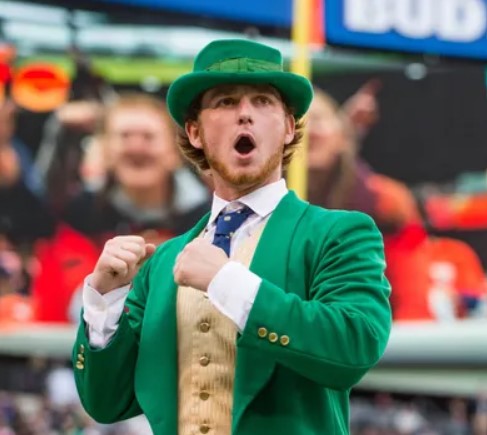Nile Clarke Kinnick Jr., known as the “Cornbelt Comet,” remains an enduring icon in college football history. His illustrious career, marked by exceptional athletic prowess and commendable personal achievements, continues to inspire generations of athletes. This article explores Kinnick’s early life, football career, and lasting legacy.
Early Life and Background
Nile Kinnick was born into a family with a strong legacy of public service; he was the grandson of a governor. His early years were spent in Adel, Iowa, where he excelled in football and basketball at Adel High School. Following his junior year, his family moved to Omaha, Nebraska, where Kinnick’s athletic talents continued to flourish.

Kinnick’s Heisman Season Achievements
Kinnick’s tenure with the Iowa Hawkeyes is nothing short of legendary:
- 1939 Heisman Trophy Winner: Kinnick led the Hawkeyes to a remarkable 6-1-1 record.
- Consensus All-American.
- Key Stats:
- Threw for 638 yards and 11 touchdowns
- Rushed for 374 yards on 106 carries
- Converted 11-of-17 dropkick attempts
- Scored 41 points
- Contributed to 107 of Iowa’s 130 points that season
- Made eight interceptions
The 1939 Season
As a halfback and the team’s main passer, Kinnick’s versatility was unmatched. His ability to throw, rush, and kick made him a triple threat on the field. This was reflected in his direct involvement in the majority of the team’s scoring, showcasing his pivotal role in the Hawkeyes’ success.
Kinnick’s Heisman Speech Celebrated Peace
Kinnick’s character was as commendable as his athleticism. During his Heisman Trophy acceptance speech, he poignantly stated:
“I thank God I was born in America, where they have football fields instead of in Europe where they have battlefields. I know the football players of this country would rather battle for such medals as the Heisman Trophy than for such medals as the Croix de Guerre and the Iron Cross.”
This sentiment resonated deeply, capturing the isolationist mood of pre-World War II America and highlighting Kinnick’s profound appreciation for his opportunities.

Naval Career and Tragic Demise
After graduating as a member of Phi Beta Kappa honors society, Kinnick turned down a professional football career to pursue law. He enrolled in law school at the University of Iowa in 1940. However, his academic pursuits were interrupted by the advent of World War II.
Kinnick enlisted as a naval aviator and served in the Pacific Theater. Tragically, on June 2, 1943, during a routine training flight, Kinnick’s plane malfunctioned. To avoid endangering his fellow servicemen on the aircraft carrier, he attempted a crash landing in the Gulf of Paria. Neither Kinnick nor his plane were ever recovered. He remains the only Heisman Trophy winner to have died serving his country.

Kinnick’s Impact and Legacy Still Stands Tall
Nile Kinnick’s legacy extends far beyond his achievements on the football field. The University of Iowa’s Kinnick Stadium, named in his honor, stands as a testament to his enduring influence. In 2006, a 16-foot statue was built in the main entrance of the stadium. Iowa fans consider the statue as a good luck charm and thousands of fans who rub it for luck before they enter the stadium.
His name continues to inspire through the Nile C. Kinnick Scholarship, which rewards outstanding high school athletes entering the University of Iowa.


